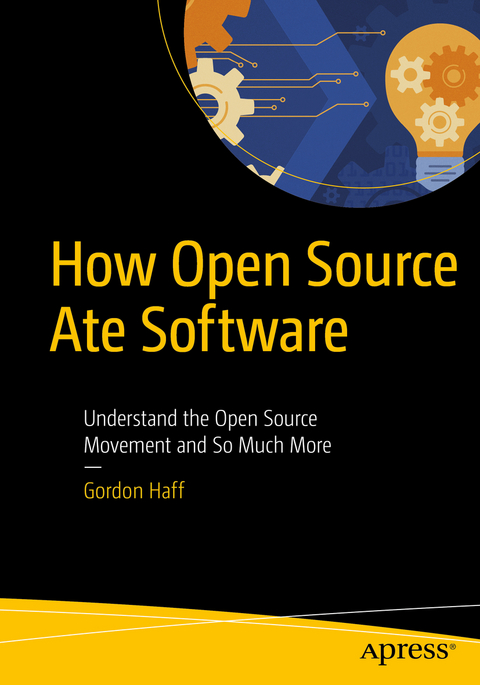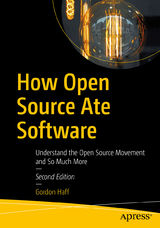
How Open Source Ate Software
Apress (Verlag)
978-1-4842-3893-6 (ISBN)
- Titel erscheint in neuer Auflage
- Artikel merken
- Demonstrates how open source has proven to be such a good model for developing software and why that makes it valuable
- How open source principles apply beyond software to other aspects of how communities communicate and businesses interact and organize
- Understand the effects of open source and its widespread influence over many aspects of technology businesses and beyond
Learn how free software became open source and how you can sell open source software. This book provides a historical context of how open source has thoroughly transformed how we write software, how we cooperate, how we communicate, how we organize, and, ultimately, how we think about business values.
You'll look at project and community examples including Linux, BSD, Apache, and Kubernetes, understand the open source development model, and how open source has influenced approaches more broadly, even proprietary software, such as open betas. You'll also examine the flipside, the "Second Machine Age," and the challenges of open source-based business models.
Today, open source serves as shorthand for much broader trends and behaviors. It's not just about a free (in all senses of the word) alternative to commercial software. It increasingly is the new commercial software. How Open Source Ate Software reveals how open source has much in common, and is often closely allied, with many other trends in business and society. You'll see how it enables projects that go beyond any individual company. That makes open source not just a story about software, but a story about almost everything.
- Understand open source opportunities and challenges
- Sell software if you're giving it away
- Apply open source principles more broadly to openorg, devops, etc.
- Review which organizational incentives you can implement
This book is for anyone who has an interest in what is happening in open source and the open source community, and anyone who is contemplating making a business that involves open source.
Gordon Haff is Red Hat technology evangelist, is a frequent and highly acclaimed speaker at customer and industry events, and helps develop strategy across Red Hat's full portfolio of cloud solutions. He is the co-author of Pots and Vats to Computers and Apps: How Software Learned to Package Itself in addition to numerous other publications. Prior to Red Hat, Gordon wrote hundreds of research notes, was frequently quoted in publications like The New York Times on a wide range of IT topics, and advised clients on product and marketing strategies. Earlier in his career, he was responsible for bringing a wide range of computer systems, from minicomputers to large UNIX servers, to market while at Data General. Gordon has engineering degrees from MIT and Dartmouth and an MBA from Cornell's Johnson School. Follow him on Twitter @ghaff.
Chapter 1. The Beginnings of Free and Open Source Software
Chapter 2. From "Free" to "Open Source"
Chapter 3. The Open Source Development Model
Chapter 4. Open Source's Connection to the Past
Chapter 5. Business Models
Chapter 6. The Flip Side of Open Source
Chapter 7. Open Source Opportunities and Challenges
| Erscheinungsdatum | 18.09.2018 |
|---|---|
| Zusatzinfo | 11 Illustrations, black and white |
| Verlagsort | Berkley |
| Sprache | englisch |
| Maße | 178 x 254 mm |
| Gewicht | 390 g |
| Einbandart | kartoniert |
| Themenwelt | Geschichte ► Teilgebiete der Geschichte ► Kulturgeschichte |
| Informatik ► Betriebssysteme / Server ► Unix / Linux | |
| Mathematik / Informatik ► Informatik ► Software Entwicklung | |
| Sozialwissenschaften ► Soziologie ► Spezielle Soziologien | |
| Schlagworte | FOSS • free as in beer • free as in speech • Free Software • Linux • Open Source |
| ISBN-10 | 1-4842-3893-1 / 1484238931 |
| ISBN-13 | 978-1-4842-3893-6 / 9781484238936 |
| Zustand | Neuware |
| Haben Sie eine Frage zum Produkt? |
aus dem Bereich



